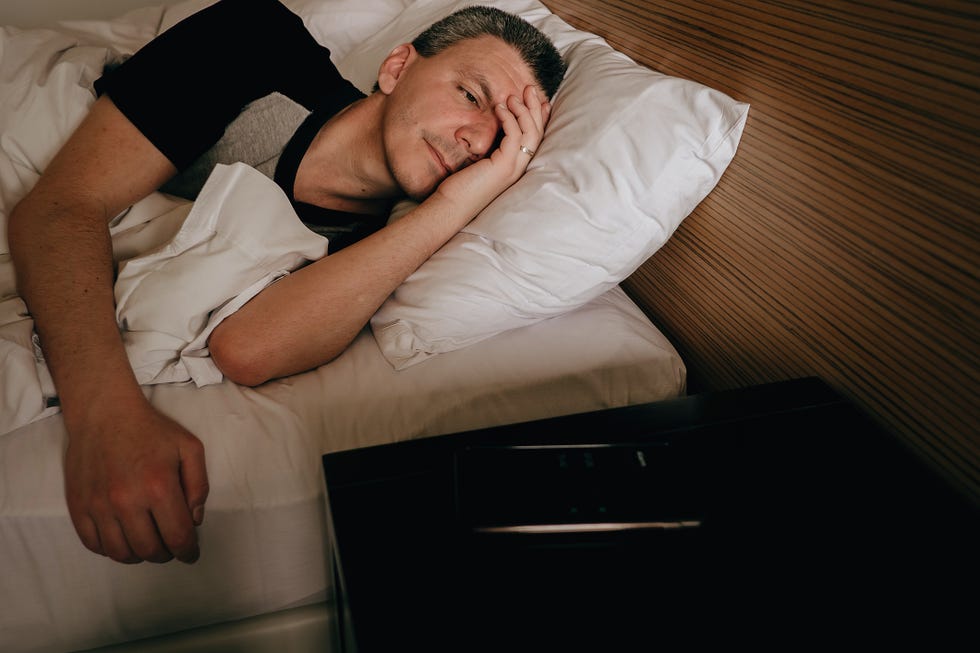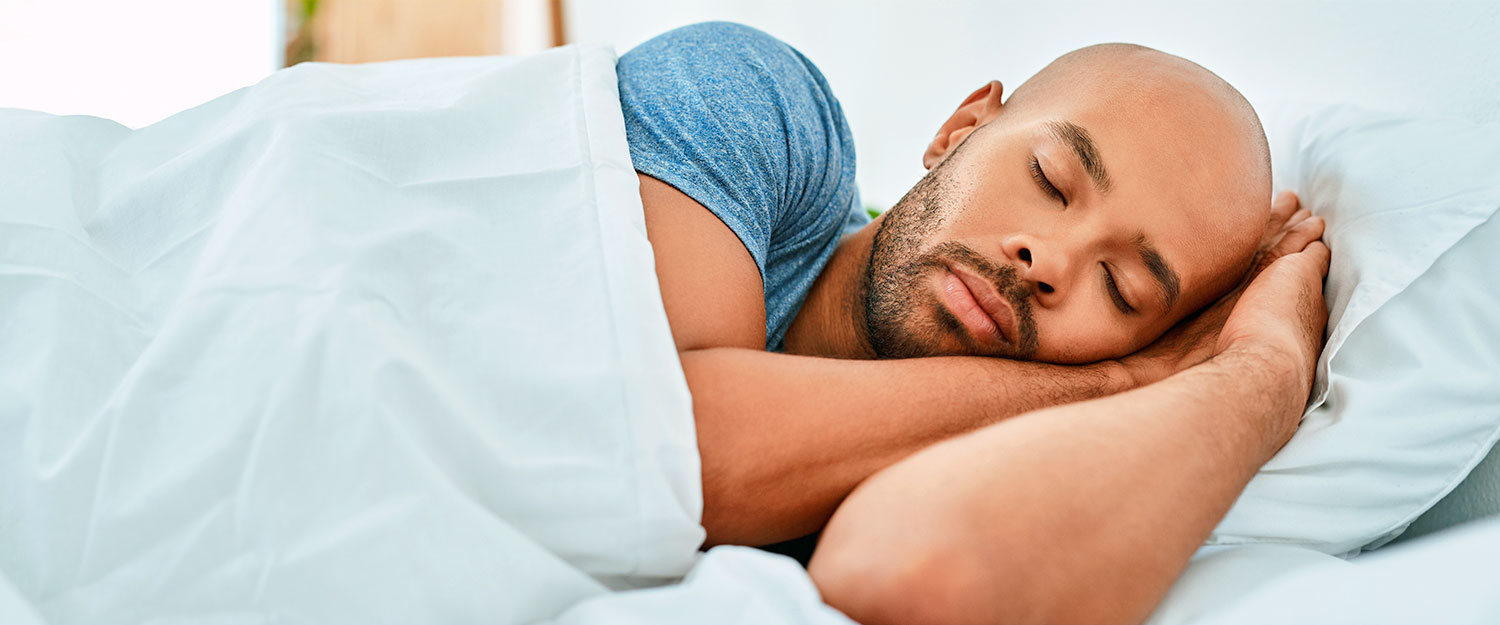Sleep Deprivation Help - Overcome Exhaustion and Improve Health And Wellness
Sleep Deprivation Help - Overcome Exhaustion and Improve Health And Wellness
Blog Article
Efficient Therapy Solutions for Managing Sleep Disorders and Enhancing Restful Rest
In the world of healthcare, the administration of sleep disorders and the mission for relaxing sleep are crucial elements of overall health. Reliable treatment solutions offer a multifaceted technique to take on these obstacles, ranging from cognitive behavior interventions to alternative techniques that promote leisure and mindfulness. The expedition of numerous methods, consisting of the integration of medication and light therapy, opens up a world of opportunities in the pursuit of much better rest quality. As we browse the elaborate landscape of rest disorders and seek to boost our sleep experience, a deeper understanding of these treatment solutions may hold the trick to opening a much more refreshing and satisfying restorative journey.
Cognitive Behavior Modification for Sleeplessness (CBT-I)
Cognitive Behavior Modification for Sleeping Disorders (CBT-I) is a structured, evidence-based therapy strategy that concentrates on resolving the underlying factors adding to rest disturbances. This type of treatment aims to change habits and ideas that intensify sleeplessness, inevitably promoting healthy and balanced sleep patterns. CBT-I usually involves a number of key parts, consisting of cognitive therapy, sleep constraint, stimulation control, and sleep hygiene education and learning.
Cognitive therapy assists people recognize and alter adverse idea patterns and beliefs concerning sleep that may be preventing their ability to fall or stay asleep. Sleep constraint entails limiting the amount of time invested in bed to match the person's actual sleep period, thereby enhancing rest effectiveness (natural insomnia remedies). Stimulus control techniques aid develop a strong organization in between the bed and rest by encouraging individuals to visit bed only when sleepy and to avoid involving in stimulating tasks in bed
Additionally, rest health education focuses on developing healthy and balanced sleep practices, such as keeping a constant sleep routine, developing a relaxing going to bed routine, and optimizing the sleep atmosphere. By addressing these factors thoroughly, CBT-I supplies an efficient non-pharmacological intervention for handling sleep problems and boosting overall rest top quality.
Sleep Hygiene Practices
Having established the foundation of cognitive restructuring and behavior adjustments in dealing with sleeping disorders with Cognitive Behavior modification for Sleeping Disorders (CBT-I), the emphasis currently moves towards checking out vital Rest Health Practices for preserving optimal rest high quality and overall well-being.
Rest health practices include a variety of habits and environmental elements that can substantially impact one's capacity to sleep and remain asleep throughout the evening. Regular sleep and wake times, developing a relaxing going to bed routine, and enhancing the rest atmosphere by maintaining it dark, quiet, and cool are critical parts of excellent sleep hygiene. Limiting direct exposure to displays before bedtime, avoiding stimulants like caffeine near to going to bed, and participating in normal exercise throughout the day can additionally advertise better sleep top quality.
Additionally, exercising relaxation strategies such as deep breathing exercises or reflection before bed can help soothe the mind and prepare the body for rest. By integrating these sleep hygiene techniques right into one's everyday routine, individuals can develop a healthy sleep pattern that supports relaxing rest and overall health.
Leisure Methods and Mindfulness
Applying relaxation strategies and mindfulness methods can play a pivotal function in fostering a sense of tranquility and promoting top quality sleep. insomnia therapy. These techniques intend to silent the mind, lower stress and anxiety, and develop an optimum environment for peaceful rest. One widely exercised approach is deep breathing workouts, where people focus on sluggish, deep breaths to relax the body and mind. Modern muscle mass leisure involves tensing and after that launching each muscle mass group, promoting physical leisure. Furthermore, guided imagery can aid deliver people to a peaceful location in their minds, helping in anxiety reduction and enhancing sleep quality.
Mindfulness methods, such as reflection and yoga, are likewise effective in advertising leisure and enhancing rest. Mindfulness urges individuals to stay existing in the minute, releasing fret about the past or future. By including these techniques into a going to bed regimen, people can signify to their bodies that it is time to unwind and prepare for rest. On the whole, incorporating leisure methods and mindfulness practices can considerably add to handling sleep conditions and enhancing general sleep high quality.

Medicine Options for Rest Disorders
After discovering relaxation techniques and mindfulness methods as non-pharmacological interventions for boosting sleep top quality, it is necessary to take into consideration medication alternatives for people with sleep disorders. In situations where lifestyle adjustments and therapy do not give sufficient alleviation, medication can be a useful device in managing rest disruptions.
Typically recommended medicines for sleep conditions include benzodiazepines, non-benzodiazepine hypnotics, antidepressants, and melatonin receptor agonists. Benzodiazepines, such as diazepam, are sedatives that can assist cause sleep, but they are commonly suggested for short-term usage because of the risk of dependancy. Non-benzodiazepine hypnotics like zolpidem are also utilized to treat insomnia and have a reduced danger of dependence compared to benzodiazepines. Antidepressants, such as trazodone, can be valuable for people with sleep therapy co-occurring depression and rest disruptions. Melatonin receptor agonists, like ramelteon, target the body's natural sleep-wake cycle and can be handy for regulating sleep patterns.
It is essential for people to consult with a doctor to establish the most appropriate medicine alternative based on their details sleep condition and case history.
Light Therapy for Circadian Rhythm Policy
Light treatment, additionally known as photo-therapy, is a non-invasive treatment method made use of to manage circadian rhythms and enhance sleep-wake cycles. This treatment includes direct exposure to bright light that simulates natural sunlight, which helps to reset the body's internal clock. By exposing people to particular wavelengths of light, generally in the morning or evening depending on the wanted effect, light treatment can efficiently change the body clock to promote wakefulness during the day and improve peaceful rest in the evening.
Study has actually shown that light therapy can be specifically helpful for individuals with body clock problems, such as postponed sleep stage disorder or jet lag. It can additionally be helpful for those experiencing seasonal affective condition (SAD), a type of anxiety that generally occurs throughout the wintertime months when natural light direct exposure is decreased. Light therapy is generally well-tolerated and can be made use of along with other treatment methods for rest conditions to maximize outcomes and boost total rest quality.
Verdict
Finally, effective therapy remedies for taking care of sleep disorders and boosting peaceful rest consist of Cognitive Behavioral Therapy for Sleeping Disorders (CBT-I), sleep health techniques, leisure techniques and mindfulness, medicine choices, and light treatment for body clock guideline. These methods can assist people improve their sleep quality and general health. It is necessary to seek advice from with a healthcare provider to identify the most ideal method for attending to rest problems.
As we browse the detailed landscape of rest problems and seek to improve our rest experience, a deeper understanding of these treatment remedies might hold the secret to unlocking an extra rejuvenating and satisfying restorative trip.
Rest constraint involves limiting the amount of time invested in bed to match the individual's actual sleep duration, therefore boosting rest efficiency. Consistent sleep and wake times, creating a relaxing bedtime routine, and enhancing the sleep setting by keeping it dark, peaceful, and cool are vital components of good rest health. Light treatment is normally well-tolerated and can be used in conjunction with various other treatment approaches for sleep disorders to maximize results and boost total sleep top quality.

Report this page